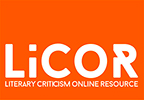We might as well let the cat out of the bag immediately: no one has been able to come up with one, unified working definition of what literature is. We think of literature as something artful and heightened, something which in some way or other is different from every-day language, but this distinction is difficult to maintain in practice. For every approach that seems to work, someone has been able to come up with a counterexample or an exception that undermines the definition.
‘Non-literary’ writing such as journalism, academic articles, diary notes, history books and end-of-year reports may use ‘literary’ techniques, and literature may use language habitually connected to non-literary genres. Something may be fictional without being literary, like a lie made up by a witness in a court case. Conversely, something may be based closely on real events and still be considered literature. The matter remains controversial.

The distinction between literature and non-literature, then, is not an innocent one. At least one thing that is at stake is truth. Some commentators have tried to circumvent the issue by stating that literature is concerned not with facts, but with some sort of spiritual, human, universal or ideal truth, but there is no reason literature should not be concerned with facts also; and, moreover, a piece of writing does not cease to be literature should its ‘truths’ turn out to be falsehoods. So, even if truth is important to literature, and to literary critics, it too is just one more facet of a thing we cannot quite pin down.
Others have tried to base the definition on medium and genre. If the purpose of a piece of writing is to be an end-of-year report, it is not literature. If it is an exam essay in grammar, it is not literature. And, conversely, if something is classified as a novel by the author and the publisher, it is a novel – and therefore literature. While this is the definition that we come closest to accepting in our everyday dealings with writing, it is still not a good way to distinguish what the French call belles-lettres (or ‘skjønnlitteratur’ in Norwegian) from more ‘functional’ prose. The problem is that this definition hinges on something being literature simply because someone has said that it is, as opposed to something coming from within the work itself.
Finally, literature is sometimes thought of as synonymous with narrative, but, again, it does not take much prodding to topple that particular house of cards. There are many narrative modes that are not literature and there are many literary modes (chief among them poetry) that do not necessarily rely on the telling of stories.
Ultimately, we cannot disentangle literature from other types of writing, because they share too many things with each other. It is frustrating, because we all feel we know what literature is; we know it when we see it.
But does this mean that we cannot say anything about how literature works or what kinds of traits it usually contains? Fortunately, no. Even though most literary techniques and modes can be used in non-literary genres, they still remain central to literature, and over the years we have accumulated some knowledge about how they work.
Next: How Literature Works
